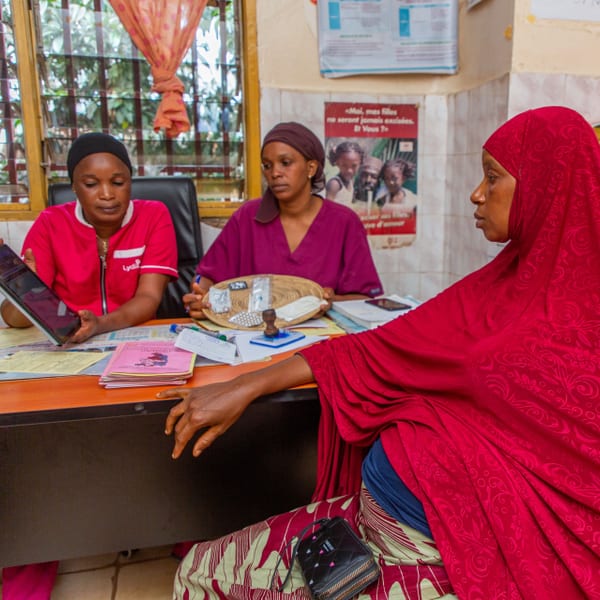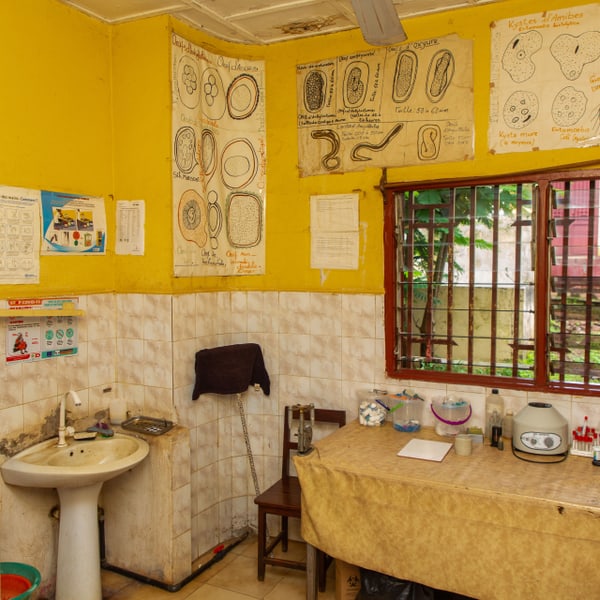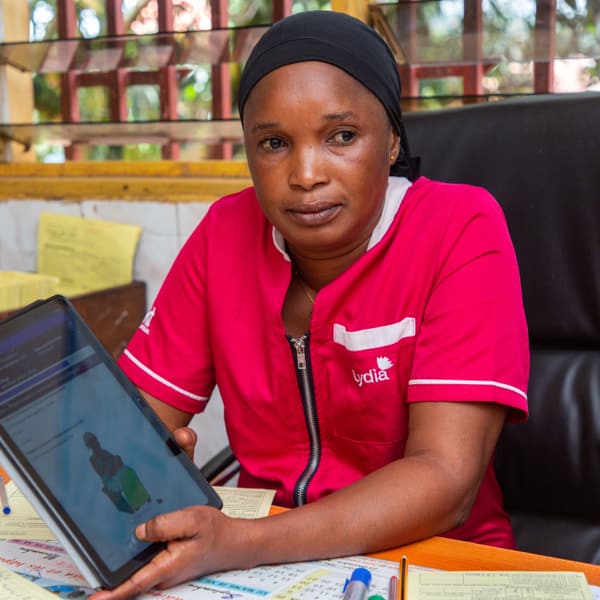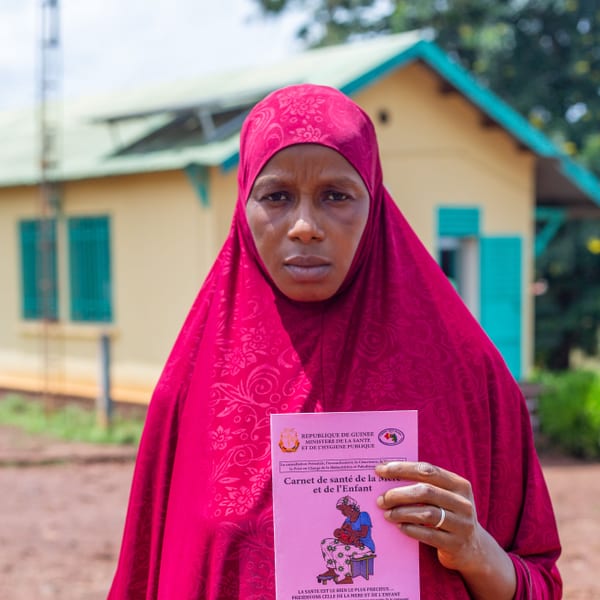Mamou is a small town located five hours' drive from Conakry. We're in the middle of the rainy season. The weather is humid and hot, causing clothes to stick to the skin. The Poudrière health center comprises several yellow-painted buildings topped by red roofs. The waiting room has no walls and is sheltered by a simple roof. Dozens of mothers with their children tied behind their backs or suckling a breast wait patiently to meet a midwife or doctor.
Upon entering the consultation room, you will notice handwritten medical instructions posted on the walls. Additionally, diagrams, figures, and graphs are displayed on adhesive paper. While paper still serves an informative and educational purpose, it is no longer the sole medium for care. Since June 2022, the Poudrière health center has been one of the first nine facilities in Mamou to be equipped with touch-screen tablets supplied by Terre des hommes.
This work is a crucial component of the 'She Decides' initiative, which promotes women's sexual and reproductive rights while combating gender-based violence. This digital revolution is in the service of maternal and child health, as well as women's empowerment, education and the prevention of early marriage, rape and domestic violence. Each consultation provides women not only with quality care for themselves and their babies, but also with access to a wealth of vital information to improve their well-being and empower them. Our teams work closely with medical staff, communities, and local authorities to achieve this.
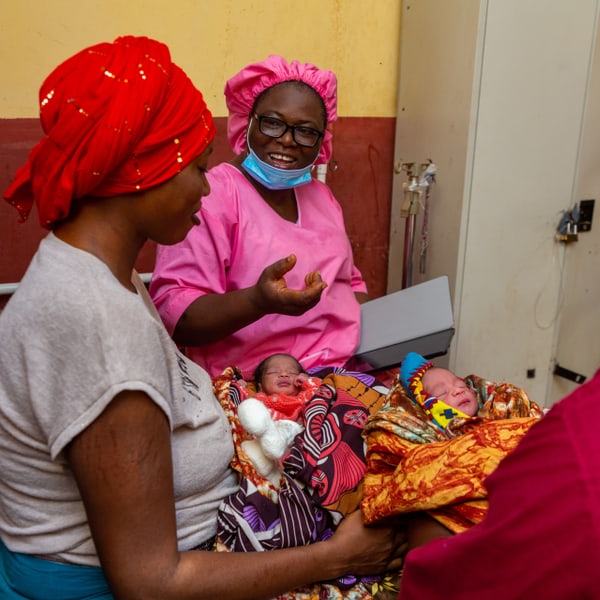
Healthcare staff can save a lot of time with the new system. Marguerite Yama Camara, a midwife at Friguiagbé, confirmed this, saying, "Paper can get damaged or lost. Now I can connect anywhere. It's really changing the way I work, and I feel I've already progressed enormously professionally, which makes me very proud."
Tablet-based consultations are not only beneficial for medical staff but also for patients. They offer practical and technical advantages, as well as prevention and awareness-raising components that are particularly useful for young mothers and pregnant women. Digitalisation gives them access to a wealth of information on pregnancy, childbirth and postnatal management.
Aïssatou, who is on her third pregnancy, admits to being much better prepared than when she had her first two children. Previously, she had turned to traditional birth attendants, like many other women, unaware of the importance of being surrounded by qualified medical staff. "Now I'm more experienced. For example, I know I should never sleep without a mosquito net again. I recommend other pregnant women to come for prenatal consultations as they will receive advice on nutrition, malaria prevention or birth planning."
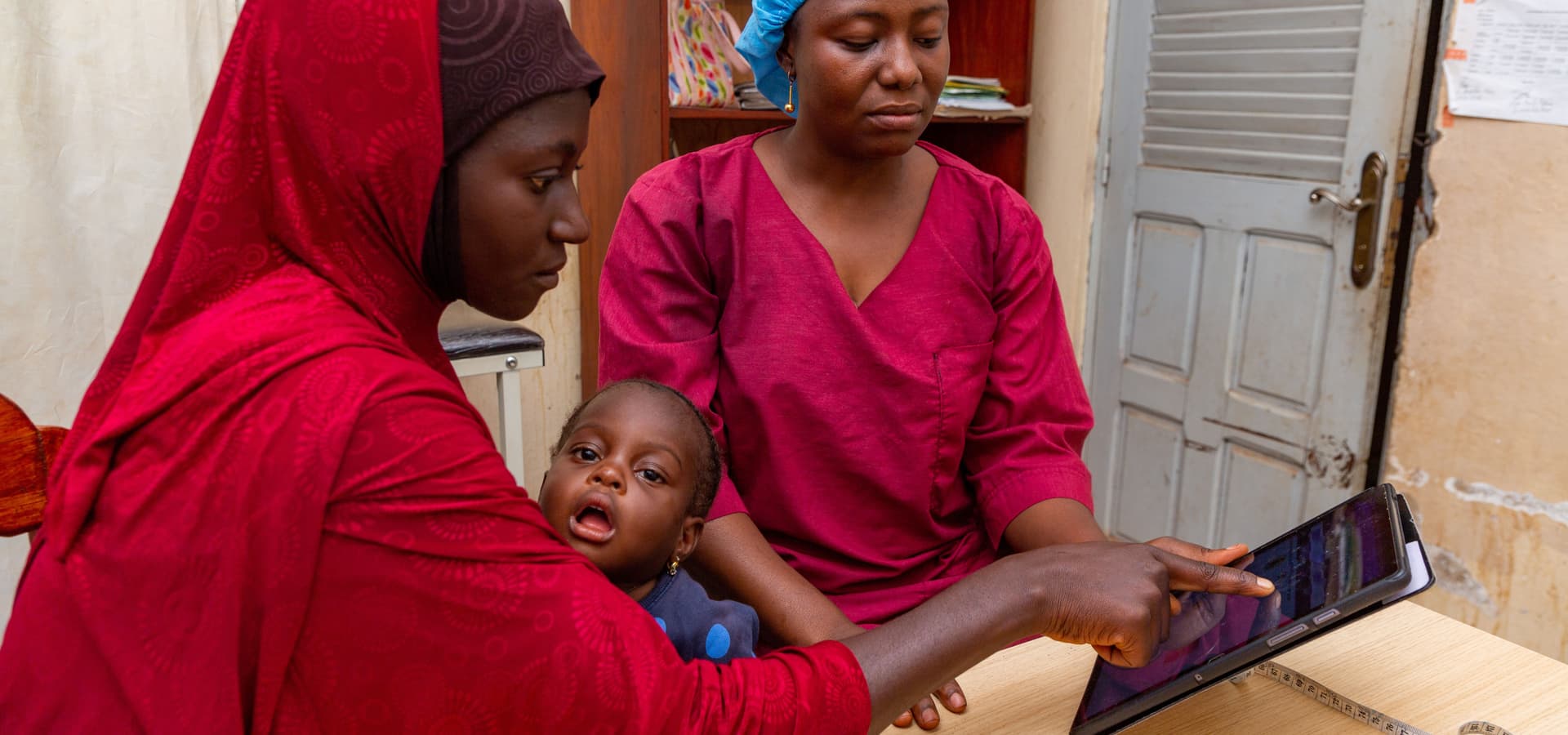
Prevention doesn't only apply to health issues. The tablets are also effective in addressing gender-based violence by providing access to the referral chain. This includes information on who to contact, where to lodge a complaint, and how to make their voice heard.
To reinforce our message and change attitudes, Tdh staff hold awareness-raising sessions with the local population. In Dounet, we attended one of these meetings. It took place in a small shed that was used as a sewing workshop. The shed had very old wooden sewing machines that ran on pedals. To accommodate the thirty or so children and young people, the organisers had moved the machines into a corner and set up benches. The topic of the day was early marriage. The audience understood the key messages well, which included women's rights, the legal age of marriage, the negative consequences of early pregnancy, and the advantages of completing education before marriage.
Aboubacar, who is 19, left one of these awareness-raising meetings feeling outraged. He had been unaware of the extent of the problems experienced by young women. "What we're doing in Guinea is not normal, we have to stop," he said. "Today, I've learned that underage marriage is no longer legal. Before the age of 18, we're still children. We can't do that!"
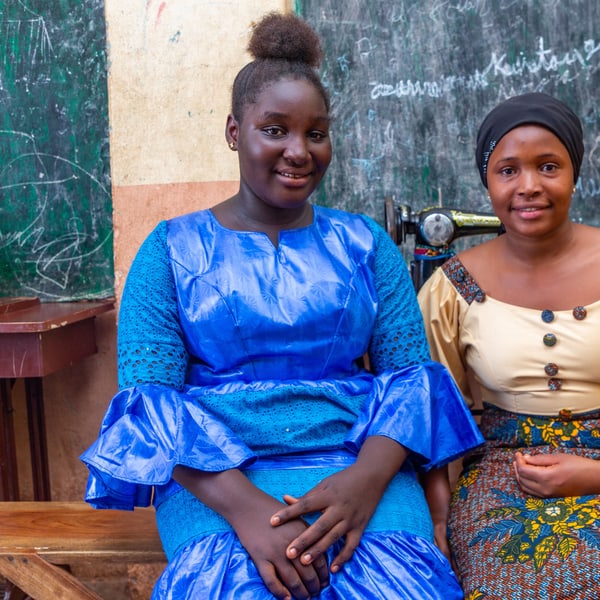
Souad is determined to control her destiny. "I want to get my degree before I get married. When you graduate, you can do what men can do, which is earn money for yourself and have people respect you." With her words, Souad proves that messages are getting through in the community: Who else but her can decide her future?
Yes, I want to make a difference.



